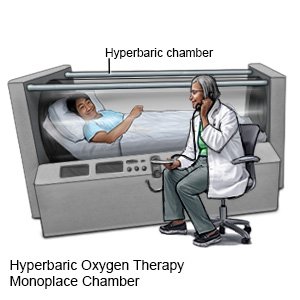Surgical Site Infections
Medically reviewed by Drugs.com. Last updated on Apr 6, 2025.
What do I need to know about a surgical site infection?
A surgical site infection (SSI) is often caused by bacteria. It may develop 10 days to several weeks after surgery. Without treatment, the infection may spread to deeper tissues or to organs close to the surgery area.
What increases my risk for a SSI?
- Medical conditions that cause a weak immune system such as diabetes, HIV, or cancer
- Medicines that cause a weak immune system such as steroids
- Decreased blood flow to the incision from blocked or narrowed blood vessels
- Smoking or being overweight
- Older age
- Radiation, chemotherapy, or poor nutrition
What are the signs and symptoms of a SSI?
- Fever
- Redness, swelling, and pain near the surgery area
- Red streaks coming from the surgery area
- Blood, fluid, or pus draining from your surgery area
- A foul odor coming from the surgery area
How is a SSI diagnosed?
- Blood tests may show the germ that is causing the infection and give information about your overall health.
- A culture is a sample of fluid or tissue taken from near your incision. It is sent to a lab and tested for the germ that is causing the infection.
- X-ray or CT pictures may be done to look for infection in deeper tissues. You may be given contrast liquid to help the pictures show up better. Tell the healthcare provider if you have ever had an allergic reaction to contrast liquid.
How is a SSI treated?
- Medicines will be given to treat the infection and decrease pain or swelling.
- Wound care may be done to clean your wound and help it heal. A wound vacuum may also be placed over your wound to help it heal.
- Hyperbaric oxygen therapy (HBO) may be used to get more oxygen to your tissues to help them heal. The pressurized oxygen is given in a pressure chamber.

- Surgery may be needed to clean the wound or remove infected or dead tissue.
How can I help my infection heal?
- Care for your wound as directed. Keep your wound clean and dry. You may need to cover your wound when you bathe so it does not get wet. Clean your wound as directed with soap and water or wound cleaner. Put on new, clean bandages as directed. Change your bandages when they get wet or dirty.
- Eat a variety of healthy foods. Examples include fruits, vegetables, whole-grain breads, low-fat dairy products, beans, lean meats, and fish. Healthy foods may help you heal faster. You may also need to take vitamins and minerals. Ask if you need to be on a special diet.

- Manage other health conditions. Follow your healthcare provider's directions to manage health conditions that can cause slow wound healing. Examples are high blood pressure and diabetes.
- Do not smoke. Nicotine and other chemicals in cigarettes and cigars can cause slow wound healing. Ask your healthcare provider for information if you currently smoke and need help to quit. E-cigarettes and smokeless tobacco still contain nicotine. Talk to your healthcare provider before you use these products.
When should I seek immediate care?
- You feel short of breath.
- Your heart is beating faster than usual.
- You are confused.
- Blood soaks through your bandages.
- Your wound comes apart or feels like it is ripping.
- You have severe pain.
- You see red streaks coming from the infected area.
When should I call my surgeon or doctor?
- You have a fever or chills.
- You have more pain, redness, or swelling near your wound.
- Your symptoms do not improve.
- You have new drainage or a bad odor coming from the wound.
- You have questions or concerns about your condition or care.
Care Agreement
You have the right to help plan your care. Learn about your health condition and how it may be treated. Discuss treatment options with your healthcare providers to decide what care you want to receive. You always have the right to refuse treatment. The above information is an educational aid only. It is not intended as medical advice for individual conditions or treatments. Talk to your doctor, nurse or pharmacist before following any medical regimen to see if it is safe and effective for you.© Copyright Merative 2025 Information is for End User's use only and may not be sold, redistributed or otherwise used for commercial purposes.
Learn more about Surgical Site Infections
Treatment options
Further information
Always consult your healthcare provider to ensure the information displayed on this page applies to your personal circumstances.
